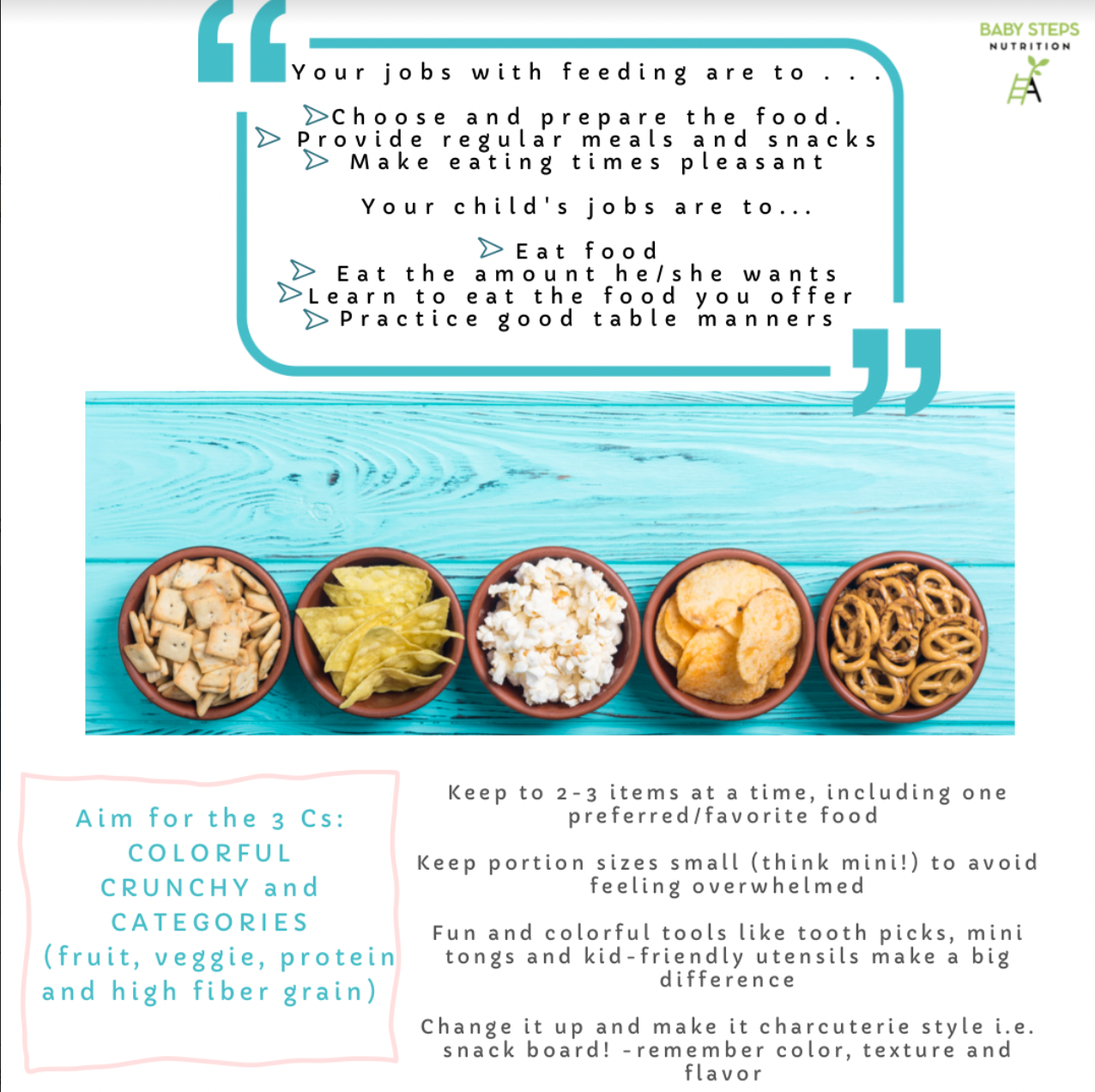Ask the Experts: What and How to Feed Your Growing Child in the Elementary Years
by Argavan Nilforoush, RDN
Good nutrition is essential for children’s physical and mental health, growth, and development. The trifecta of food, nutrition and child development are key to a healthy childhood. With the explosion of nutrition information out there, while the upside has been knowing the importance of what we eat, the downside has been the anxiety, stress, and overwhelm for kids and caregivers alike.
So how do we encourage healthy nutrition and food habits for your child and household? We bring it back to the basics. A complex diet is one that includes all the nutrients- protein, fat and carbohydrates, as well as all of the micronutrients. There are different stages of development that impact a child’s intake. Kids grow at the fastest rate during infancy and adolescence; in between those ages, kids are growing at a steady rate rather than experiencing major growth spurts. The downgrade in appetite goes hand in hand with slower growth. Between the age of 2 and adolescence, kids experience “mini” growth spurts but those tend to last for a short period of time.
Let’s first start off with the first and very important meal of the day: breakfast. After an overnight fast, children require the right fuel to help them concentrate and be active throughout the day.
Other benefits of not skipping meals are:
- Appetite regulation (less likely to overeat)
- Getting sick less often
- Better mood and attention at school by stabilizing blood sugar levels
Children need a balanced, nourishing school lunch to boost their concentration, focus and cognitive function. Skipping lunch and/or not eating enough during the school day, just like skipping breakfast, means a child is not getting enough adequate nutrients later in the day as well as making less than ideal choices due to being “hangry” (the state of being irritable due to being hungry).
To raise healthy and happy eaters, consider the following:
1) At each meal and snack, offer a variety of fruits, vegetables, whole grains, good quality proteins and healthy fats. It can take 6-15 exposures for a child to even attempt to try a new food. Start with very small portions of the new food!
2) Make grocery shopping, meal planning and preparation a fun and bonding experience. It doesn’t have to be all the time, but the greater involvement your child has in his/her routine, the more likely he/she is interested in trying new foods.
3) Make mealtime enjoyable. By removing distractions (screens, TV, phones and other electronics), you’ll foster conversation and positive interactions at the table.
4) Avoid using food as reward or punishment, and refrain from bribery, coercion and force- feeding as this may worsen picky eating and/or contribute to disordered eating patterns later in life.
5) Model being a happy and confident eater yourself. Eat a variety of foods and avoid restrictive or fad diets where food are labeled as good and bad.
If you are struggling to meet your child’s nutrition needs, consider reaching out to a qualified nutrition professional who specializes in pediatrics. As a pediatric nutritionist, my job is to support you and your family’s needs to raise healthy and happy children.
Argavan is Registered Dietitian Nutritionist with 15 years of experience working with families, infants, toddlers, older children and teens in both the inpatient and outpatient settings. Her private practice, Baby Steps Nutrition, offers individualized nutrition consulting and counseling services to children ages birth-21 years with a variety of medical conditions and health issues/concerns.
Argavan also hosts the Baby Steps Nutrition Podcast, which can be found on Apple Podcasts, Google Podcasts and Amazon Music. She covers a variety of topics related to nutrition and, health and wellness, which impacts children of all ages and stages. Each episode features insightful conversations with experts who offer tips, tricks, and resources to empower families to make positive changes every day that have a lasting impact.
follow Baby Steps Nutrition on Instagram




